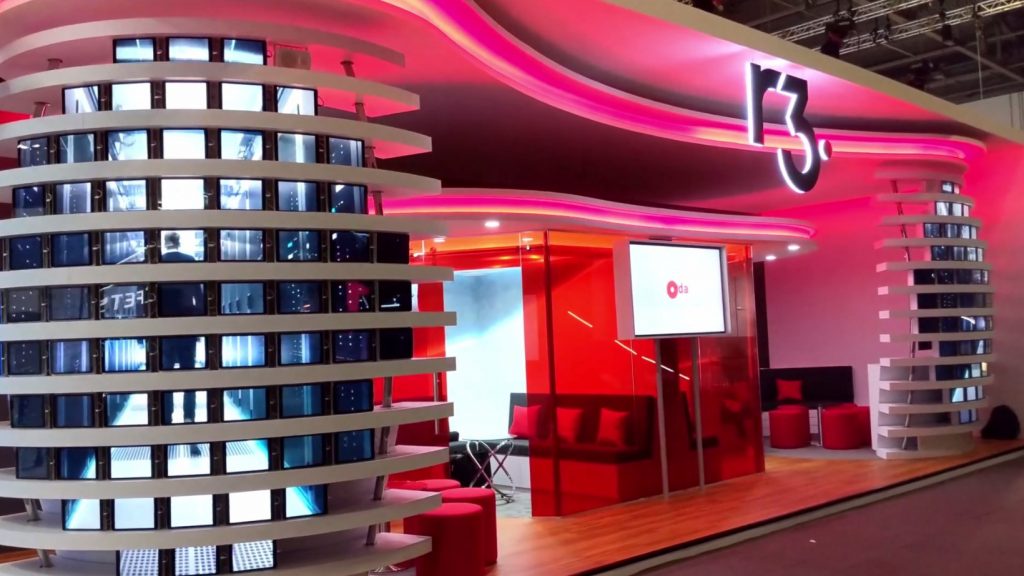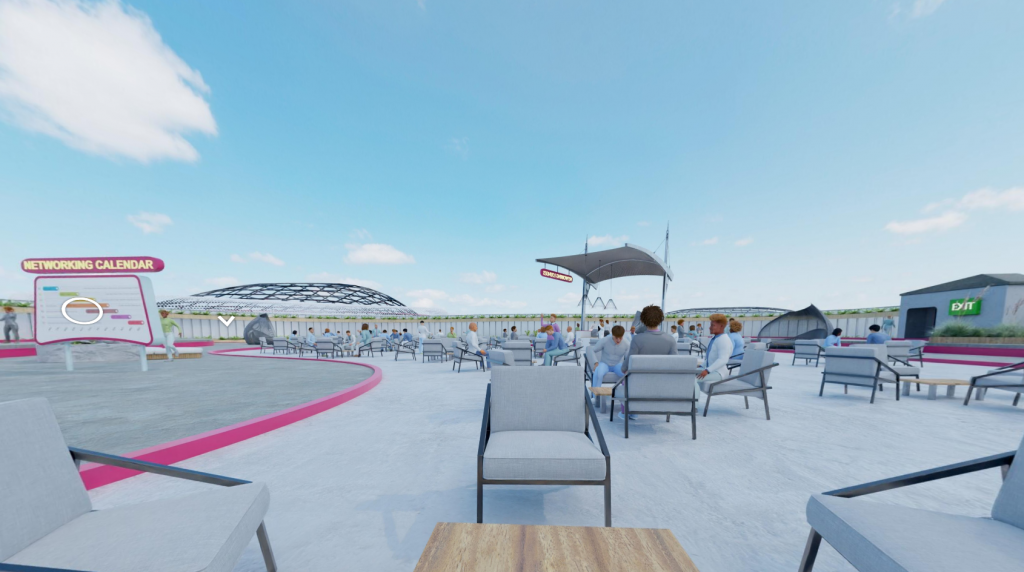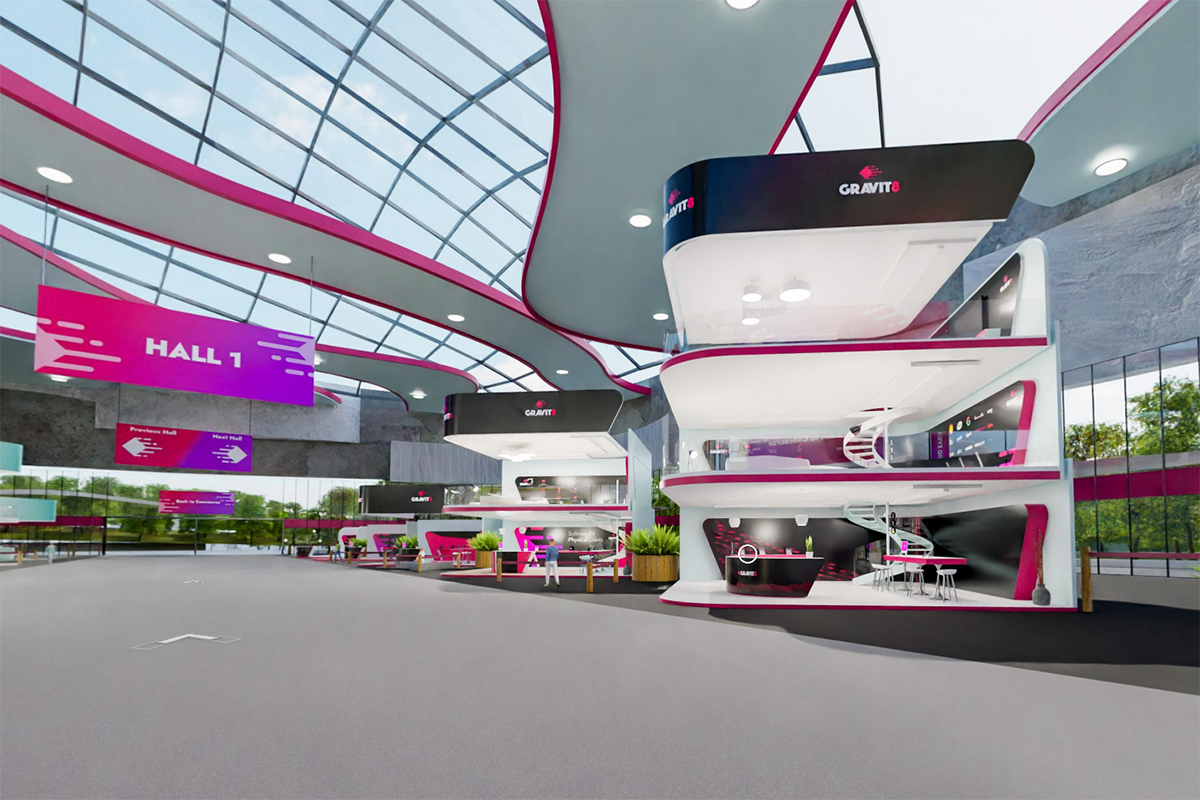The potential of immersive tech is nothing new, its game-changing capabilities across many industries, from pharmaceutical, education and sports to hospitality, travel and events evident long before the pandemic. Yet while Covid has accelerated the move to digital transformation, physical interaction and personal connection still play a pivotal role in industry events. This has often been a challenge to recreate in the digital setting.
While a return to live physical events signals a welcome reunion with all things ‘normal’, conversely the pandemic has also triggered a revolutionary step change in mindset as well as the working landscape. There is no getting away from the fact that how we choose to communicate and connect has vastly evolved from what it was a few years back. And in a 24/7 culture which preceded the virus, convenience and time efficiency have become our biggest drivers for decision making concerning events attendance. Take the pharma industry, where one 2020 research study revealed that 45% of healthcare professionals who had registered for an online medical conference wouldn’t have attended in person – regardless of whether the pandemic had happened.
We want the best of both worlds – where we can experience interaction rather than isolation, but at the touch of a button. Lockdown created Zoom burnout, so users now have little appetite to just sit and listen. On a digital platform, they want a more enriched, interactive delegate experience. So could this demand for the ‘best of both worlds’ pave the way for more hybrid events? As IPCAA’s Co-President, Nicky Simpson, explains: “It’s this choice of participation that signifies a hybrid approach is the blueprint for the future of medical congresses.” It is certainly expected to be the approach well past the pandemic.
This is reflected in a study of 720 delegates who were asked during the pandemic whether they wanted either virtual or hybrid events to continue, of which a staggering 87% said yes.
This would also explain the sheer number of renowned pharma trade shows and events that have taken or are taking on a hybrid format this year, such as Pharma Forum, Pharmapack and the Pharmaceutical Compliance Congress.

While the full potential of hybrid tech has yet to be realised, it is being seen as a solution to enhance in-person events rather than replace them entirely. As stated in Forbes, hybrid events capture the benefits of both live and virtual events. One of the benefits of hybrid events it is they can be tailored to the preference of a specific audience – live, or virtual.
For example, if an organiser is planning to welcome only a small number of face-to-face attendees to the live aspect of the event, it can save costs by hiring a small venue, and focus the remaining budget on its interactive live elements and the virtual space.
Alternatively, if delegates or visitors are more likely to want to attend an event in person, organisers and brands can balance this by hiring a larger venue, and including multiple digital aspects to it, such as large-scale attractors e.g. an iPad wall and digital technology attendee engagement solutions such as object recognition tables or bespoke engagement software, whilst providing virtual access to those who are unable or not wanting to attend the physical event.
Hybrid events could also be a way of future-proofing businesses as well as the hospitality sector. One way for companies to protect themselves is to plan all future events using the hybrid model. Having already taken a battering, the industry would not survive another significant wave of Covid should everything grind to a halt. Since the onset of Covid-19, pandemic insurance is largely unavailable or cost-prohibitive. Should this flare up again or if another unforeseen scenario occurs – such as a natural disaster, adverse weather or terrorism – events will not be insured and will be financially devastating for them. If unforeseen circumstances occur that require cancellation of the in-person aspect of the event, the virtual component of the event will already be set up. Companies can also focus on working with the virtual events platform to ensure it can scale and accommodate the new influx of virtual attendees.
Ultimately, what employees want as we move forward in this post-Covid world is more flexibility. What the hybrid model offers is just that. As audience experiences look set to drive the future, it may be time for companies to not only protect their time, money and resources when planning a future event but also place consumers’ changing needs at the heart of their events offering by pursuing the hybrid event model.




Responses